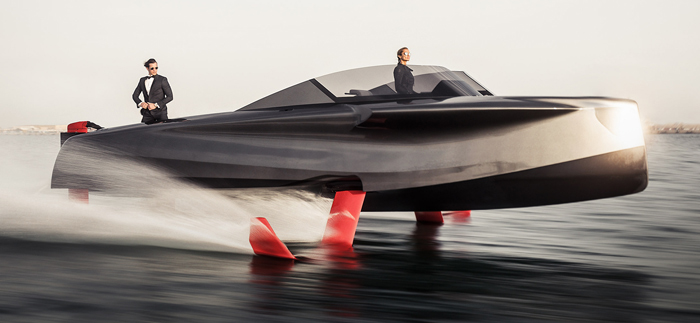
Before jumping into the deep end of designing a new website, try and audit your business by asking the following questions. What are our biggest obstacles today, and will a new website help us?
1. Why is building a new website the answer?
Do we have a marketing problem, or is it sells? Or is there a problem with the product?
2. Who are you trying to get leads from? Dealers or is it a factory direct to consumer model? Are they domestic or international?
The more you know about your customers the better you can cater to there needs by adding things like dealer logins, create-your-own build feature, or multi-language functionality.
3. What makes you different than your competitors? When buyers are shopping around and they land on your site, how do you tell that story?
Hint: Saying buzz words like Innovation, Spacious, Efficient means nothing because all your competitors are saying it. Flip through any boating magazine for a laugh.
4. Why did your current customers buy from you? What is your ideal customer looking for?
The answer you get will become the primary message. Benefits Sell – Features Tell. The last thing you should do is start listing features right away.
5. When they land on your website, what do you want them to do?
Watch your branding video, request a sea trial, read an article, join your email list, leave a review?
Plan your content accordingly and make your calls to action clear.
6. Once they come to your website why will they come back?
Whether they’ve bought or not, you have to give them a reason to go back to your website so you can stay top of mind, creating brand loyalty. Give away something for free, whether it’s a raffle for branded yeti cups, how-to boating video tips, or cooking recipes, you can be sure your audience will thank you for it. The more value you give, the more they will go out of there way for you.
7. How are you planning to drive people to your new website?
Awareness is always the first step in any form of advertising and marketing.
Whether you use influencers, social media, Google Adwords, organic SEO, Facebook ads, or some guy on the side of the road spinning a sign over his head – getting the right people to the site is all that matters. You can waste 6 months & thousands of dollars if you build the world’s best boating manufacturer website and nobody uses it. Make it easy for your clients to find you.
8. How will the website collect or generate revenue for you?
Can they order and purchase a boat on your site? Can customers make payments? Are you planning on selling apparel as well?
9. How will this new website make the buying process easy for your customer #1? & #2 How will it make the selling and follow-up process easier for your staff?
Efficiency is just as important online as it is when building your boats.
Can you use the contact forms at boat shows to collect leads quickly? Can your customers schedule a sea trial or take delivery dates? Will it need to integrate into your CRM system that sends automatic follow up emails or text message for your sells reps? Can they download any pertinent paperwork, brochures, or owners manuals?
10. What are the overall goals your company is trying to hit, and how will this help?
If your companies goals are to expand into a new facility by 2020 then you’re better off managing that process as that will have a much bigger impact on your business.
11. What does that home run look like?
And how will we measure success along the way? Is it # of leads, # of sells, building a community, engagement, email list, or winning awards?
Know what you’re competing against: Foiler.com
There are lots of things to consider when making a website. Make sure the team that is building your new site gets these answers before they build you something that doesn’t serve you or your customers.
If you need help guiding your marketing team or agency partner in the right direction, drop us a line. #RaiseTheBarAndCrushYourCompetition
Sea you on the water!

